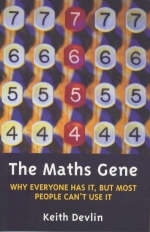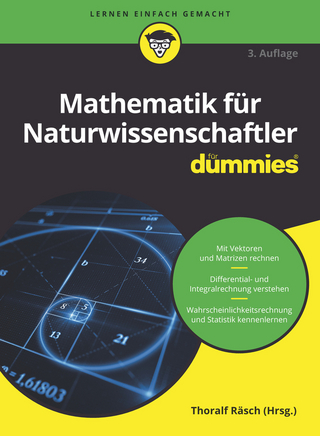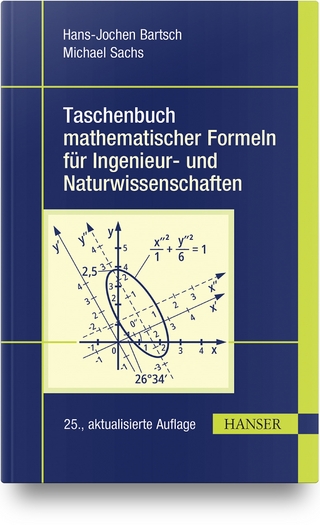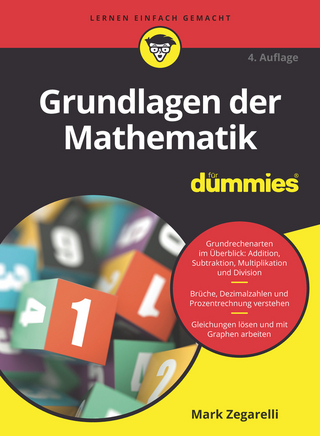
The Maths Gene
Why Everyone Has it, But Most People Don't Use it
Seiten
2000
Weidenfeld & Nicolson (Verlag)
978-0-297-64571-9 (ISBN)
Weidenfeld & Nicolson (Verlag)
978-0-297-64571-9 (ISBN)
- Titel ist leider vergriffen;
keine Neuauflage - Artikel merken
Everyone has the ability to do mathematics. The Maths Gene explains why and suggests ways in which you can improve your own mathematical skills.
The Maths Gene explains how the human mind came to - and continues to - perform mathematical reasoning. Where does this ability come from? Our prehistoric ancestors' brains were essentially the same as ours, so they must have had the same underlying ability. What purpose could it serve in 50,000bc? And what exactly goes on in our brains when we multiply 15 by 36 or prove Fermat's last theorem? The answer, according to Keith Devlin, lies within our genes and more specifically with the pattern-making abilities with which we are born. He uses this insight to reveal why some people feel that they 'can't do maths', while a select few excel at the subject and to suggest ways in which we can improve our mathematical skills. He also answers the following questions: o Are there things I can do to improve my mathematical skills? (YES) o Can new-born babies do mathematics? (YES) o Do mathematicians have a key secret that enables them to do mathematics with apparent ease? (YES) o Do Chinese and Japanese children have a built-in advantage over American and European children when it comes to learning mathematics? (YES)
The Maths Gene explains how the human mind came to - and continues to - perform mathematical reasoning. Where does this ability come from? Our prehistoric ancestors' brains were essentially the same as ours, so they must have had the same underlying ability. What purpose could it serve in 50,000bc? And what exactly goes on in our brains when we multiply 15 by 36 or prove Fermat's last theorem? The answer, according to Keith Devlin, lies within our genes and more specifically with the pattern-making abilities with which we are born. He uses this insight to reveal why some people feel that they 'can't do maths', while a select few excel at the subject and to suggest ways in which we can improve our mathematical skills. He also answers the following questions: o Are there things I can do to improve my mathematical skills? (YES) o Can new-born babies do mathematics? (YES) o Do mathematicians have a key secret that enables them to do mathematics with apparent ease? (YES) o Do Chinese and Japanese children have a built-in advantage over American and European children when it comes to learning mathematics? (YES)
Keith Devlin was born and grew up in Britain. Since 1987 he has resided in the United States. He is currently Senior Researcher at the prestigious Centre for the Study of Language and Information at Stanford University, Professor of Information Science at the University of Pittsburgh and Dean of Science at St Mary's College of California. A previous editor of Focus magazine, Keith Devlin has written a regular column on mathematics for the Guardian since 1983
| Erscheint lt. Verlag | 13.4.2000 |
|---|---|
| Zusatzinfo | illustrations |
| Verlagsort | London |
| Sprache | englisch |
| Maße | 138 x 216 mm |
| Gewicht | 401 g |
| Themenwelt | Sachbuch/Ratgeber ► Natur / Technik |
| Mathematik / Informatik ► Mathematik ► Allgemeines / Lexika | |
| Mathematik / Informatik ► Mathematik ► Mathematische Spiele und Unterhaltung | |
| Naturwissenschaften ► Biologie ► Genetik / Molekularbiologie | |
| ISBN-10 | 0-297-64571-4 / 0297645714 |
| ISBN-13 | 978-0-297-64571-9 / 9780297645719 |
| Zustand | Neuware |
| Haben Sie eine Frage zum Produkt? |
Mehr entdecken
aus dem Bereich
aus dem Bereich
Buch | Hardcover (2023)
Hanser, Carl (Verlag)
CHF 41,95


